Admission Process for B.Sc. Hons. in Forensic Science Course
Pursuing a Bachelor of Science Honours (B.Sc. Hons.) in Forensic Science is an exciting and intellectually stimulating journey that can lead to a rewarding career in the field of criminal investigation, law enforcement, or forensic analysis. To embark on this academic path, you'll need to successfully navigate the admission process. In this comprehensive guide, we will walk you through the steps required to gain admission into a B.Sc. Hons. in Forensic Science program.
1. Self-Assessment and Career Goals: Before applying for a B.Sc. Hons. Forensic Science program, it's essential to conduct a self-assessment to ensure that forensic science aligns with your interests and career goals. Forensic science involves the application of scientific methods to solve crimes and investigate legal issues. Make sure you have a genuine passion for this field and a commitment to upholding justice.
2. Educational Prerequisites: To be eligible for admission into a B.Sc. Hons. Forensic Science program, you should meet certain educational prerequisites, which may include:
i) High School Diploma: You must have successfully completed high school or its equivalent from a recognized institution. Your high school coursework should ideally include subjects such as biology, chemistry, mathematics, and physics.
ii) Minimum Academic Requirements: Different universities or colleges may have specific academic requirements, including a minimum GPA and standardized test scores (if applicable). Ensure that you meet these requirements before applying.
3. Research Suitable Programs: Research universities, colleges, or institutions that offer B.Sc. Hons. Forensic Science programs. Consider factors such as program accreditation, faculty expertise, research opportunities, and the institution's reputation in the field of forensic science.
4. Admission Requirements: The admission process for a B.Sc. Hons. Forensic Science program typically includes the following components:
i) Application Form: Start by filling out the application form provided by the institution of your choice. Ensure that you provide accurate and complete information.
ii) Educational Transcripts: You will need to submit your official high school transcripts, which should include your academic performance and relevant coursework in biology, chemistry, mathematics, and physics.
iii) Standardized Tests: Some universities or colleges may require you to take standardized tests such as the SAT (Scholastic Assessment Test) or ACT (American College Testing). Check the specific requirements of your chosen institution.
iv) Personal Statement or Statement of Purpose (SOP): Write a personal statement or SOP explaining your motivation for pursuing a degree in Forensic Science. Highlight your career aspirations, relevant experiences, and why you are interested in this field. Discuss any forensic-related projects or initiatives you have been involved in.
v) Letters of Recommendation (LORs): Most institutions will request LORs from individuals who can vouch for your academic abilities, work ethic, and suitability for the program. Choose recommenders who can speak to your skills and potential in the field of forensic science.
5. Application Submission: Submit your completed applications through the online application portal of the institution or by mail, following the specific instructions provided by each institution. Be mindful of application deadlines, as they vary among institutions. Late submissions may not be considered.
6. Application Fee: Many institutions require an application fee to process your application. Ensure that you pay the required fees for each program you apply to.
7. Admission Review: Admissions committees at universities and colleges will carefully review your application materials, including your academic qualifications, test scores, personal statement, and letters of recommendation. They will assess your overall suitability for the B.Sc. Hons. Forensic Science program.
8. Admission Decision: After reviewing all applications, institutions will notify you of their admission decisions. Notifications are usually sent via email or through the institution's application portal. If you are accepted, you will receive formal admission letters outlining the next steps, including enrollment procedures and deadlines.
9. Financial Aid and Scholarships: Explore available financial aid options, scholarships, and grants to help fund your education. Many universities and institutions offer scholarships specifically for students pursuing degrees in forensic science or related fields. Check with the financial aid office at your chosen institution for information on available opportunities.
10. Enrollment and Orientation: Once you have been admitted, you will need to complete the enrollment process. This includes accepting your offer of admission, paying any enrollment deposits or fees, and registering for courses. Participation in orientation sessions will help you become familiar with campus life, academic requirements, and available resources.
11. Academic Preparation: Before starting your B.Sc. Hons. Forensic Science program, consider revisiting your knowledge of biology, chemistry, mathematics, and physics, as these subjects are fundamental to the field of forensic science.
12. Research Opportunities: Throughout your program, seek out research opportunities to gain practical experience in forensic science. Hands-on laboratory work, mock crime scene investigations, and internships with law enforcement agencies will not only enhance your knowledge but also make you more competitive in the job market or if you plan to pursue further studies.
 3 Years
3 Years
 Under Graduate
Under Graduate
 Science
Science

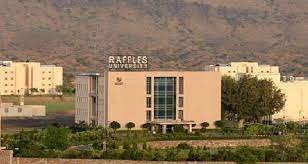
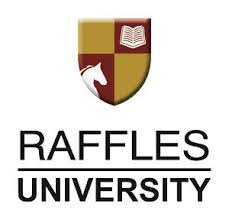
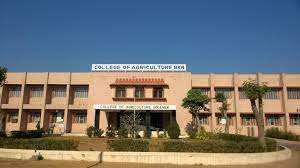

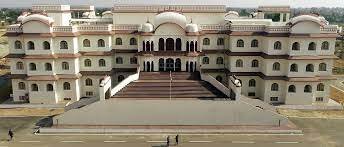

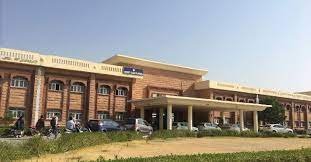
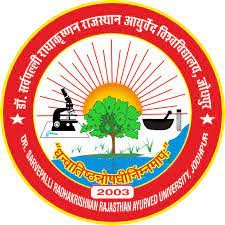

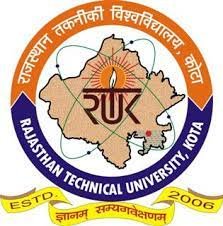



 back
back

